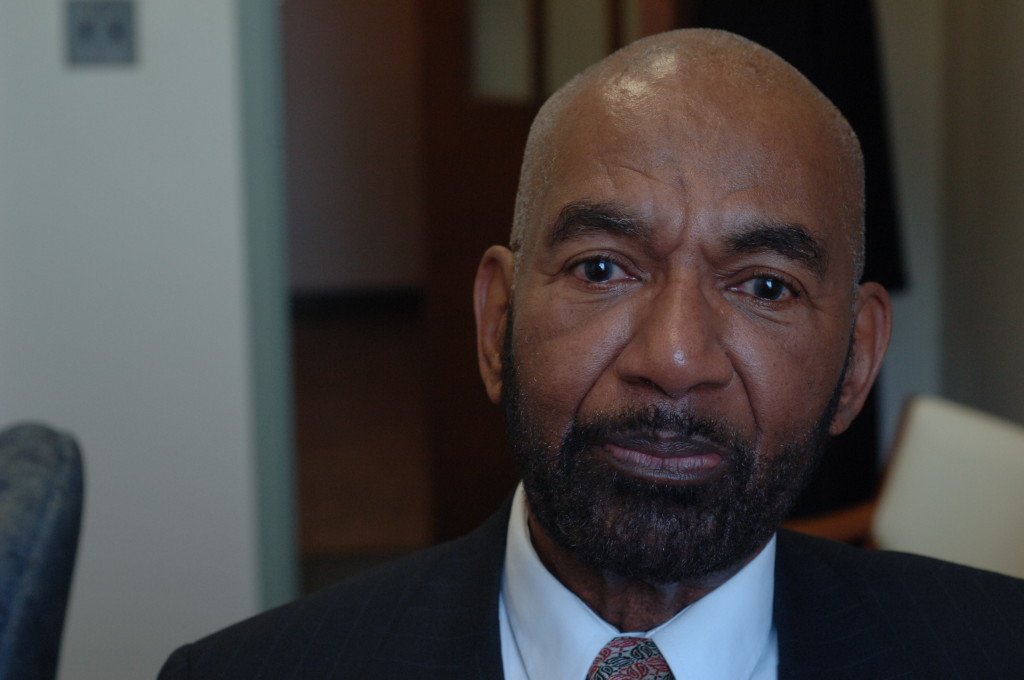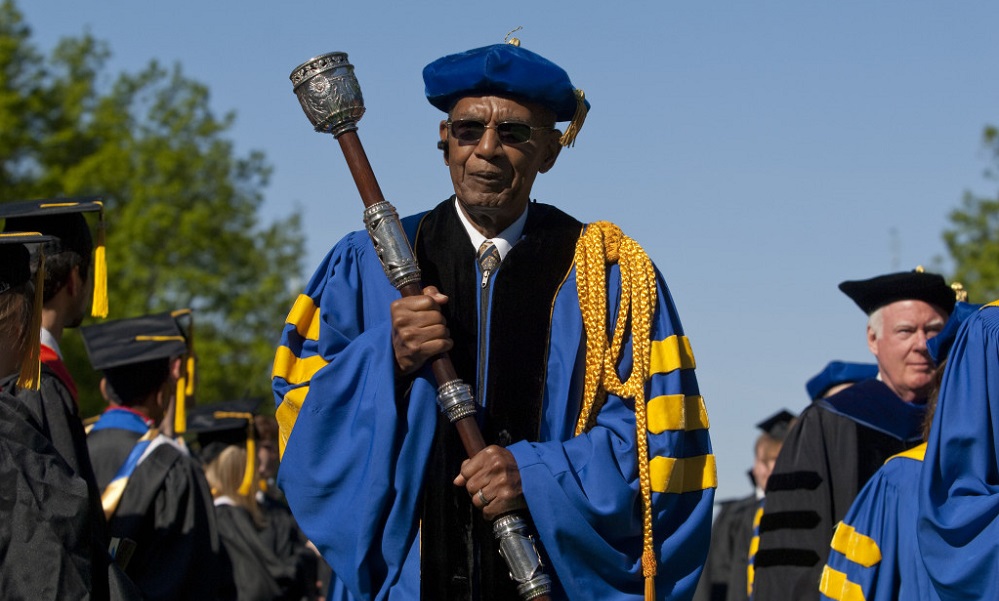Jesse T. Moore Jr., a professor emeritus of history and prominent scholar of American and African-American history who helped focus the University’s efforts to bring diversity to its academic programs and community, died Saturday, April 18, at the age of 82, after a battle with cancer.
A leading historian of the National Urban League, Moore had been a member of the Department of History since 1970, earning praise from his students as a devoted teacher and accolades from his colleagues as an astute scholar of the African-American experience. He later served as an associate dean in the College and at the University, leading initiatives to recruit minority undergraduate and graduate students and to provide support to those who enrolled.
In 1992, he founded the University’s Ronald E. McNair Post-Baccalaureate Achievement Program, a federally supported initiative to encourage talented sophomores and juniors from low-income, first-generation, and underrepresented groups to pursue doctoral degrees. The program is now administered through the David T. Kearns Center for Leadership in Arts, Sciences & Engineering.

Moore in 2006.
For more than a quarter century, Moore represented the academic traditions of Rochester during University-wide ceremonies such as commencement and other events, serving since 1990 in the role of University marshal and later grand marshal.
In an April proclamation, President Joel Seligman recognized Moore’s service and contributions to the University.
“Jesse Moore may be best known as a revered teacher and mentor to generations of students,” Seligman wrote. “But his devotion to students went well beyond the classroom. He is legendary for the hours he spent advising students and working to create a more diverse and inclusive community as an associate dean in the College and the Office of the University Dean of Graduate Studies.
“Through his work, he has transformed lives.”
Other colleagues, too, noted Moore’s lifelong commitment to improving the lives of those around him.
“Jesse was a pioneer, and we are in his debt for a remarkable legacy of service to the University, as a teacher, scholar, and citizen,” said Provost Peter Lennie, the Robert L. and Mary L. Sproull Dean of the Faculty of Arts, Sciences & Engineering. “His generosity was boundless, and he greatly enriched the lives of all who knew him.”
Said Matt Lenoe, chair and associate professor of history:
“Jesse Moore was a truly generous soul, with a deep intelligence, and a steadfast dedication to the ideals of freedom and justice. From his childhood on a rural North Carolina farm to his leadership roles at the University, Jesse led a long, rich, and meaningful life. His colleagues in the history department will miss him greatly.”
A graduate of North Carolina College at Durham, Moore served in the Navy and taught high school before earning a PhD from Pennsylvania State University in 1971. His 1980 book, A Search for Equality: The National Urban League, 1910–1961, established him as a leading authority on the civil rights organization’s history and its contributions to American social history. The University’s Urban League Scholarship was renamed in his honor in 2009.
Joining the history department in 1970, he was, as he told Rochester Review in 2007, for many years, the only African-American, full-time faculty member on the River Campus. There, he said, he learned the power of mentorship.
“I was fortunate to be in a department and at a university with people—Professors Eugene D. Genovese, Stanley Engerman, Robert Hall, and Presidents W. Allen Wallis and Robert Sproull—who were senior and took an interest in me,” he said. “They made me feel a part of the University.”
For three decades, he taught popular courses on African-American history, American protest movements, and 20th-century American history. He also offered classes on South African history and American constitutional history. He received the Edward Peck Curtis Award for Excellence in Undergraduate Teaching in 1980.
In noting Moore’s retirement from teaching in 2000, Robert Westbrook, the Joseph F. Cunningham Professor in the Department of History, paid tribute to his colleague’s contributions to the department and to the University.
“While we in the history department have missed Jesse as a full-time teacher and colleague, we have admired his exceptional devotion to his administrative work,” Westbrook wrote. “No one has labored more strenuously than Jesse to make the UR a more diverse and just community.”
Moore is survived by his son, Jesse (Jay) Thomas Moore III of Boston, his brother, George Leon Moore of St. Louis, his sisters, Dr. Ruth Moore Jackson of Riverside, California, Barbara Smalls Delifus of Jacksonville, Florida, and Georgia Moore Mitchell of Newport News, Virginia.
Funeral service will be held at 10 a.m. on Saturday, April 25, at Good Shepherd Church, 3318 East Henrietta Rd., Henrietta, NY. In recognition of Moore’s long service and dedication to the University, the University flag will be lowered to half-staff on the day of the funeral service.




